Dear blog friends,
For several weeks now I have taken you on a study of three dreams whose subject turned out to be one of the major topical subjects: ecology. Indeed, these three dreams correspond exactly to the definition of ecology, which seeks to "create a better balance between man and his natural environment as well as the protection of the latter". (1)
In these three dreams, if they were understood correctly, the unconscious would show that there is a link between the love life of young women and the quality of life on the earth around them.
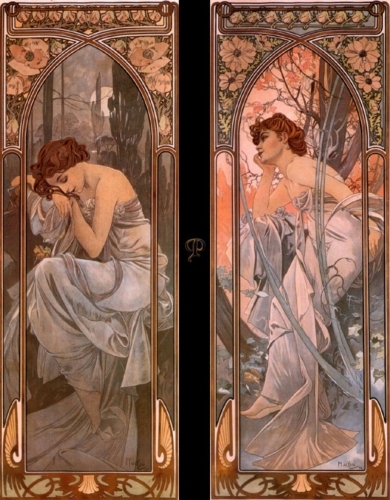
These three dreams then led us each time to ask ourselves the questions:
Could there be a connection between the outer world and the inner world?
Could the quality of our earthly environment outside be related to the quality of our inner, instinctive life, which the alchemists called “our inner earth”, whose other name is the unconscious?
Could our outer Earth be ill because our inner earth is mistreated?
Would it be then that by taking care of one's inner Earth, one's instinctive and spiritual Nature, one would also take care of Nature, the concrete and material Earth outside?
This question may have seemed bizarre, unrealistic, unbearable, even foolish or ridiculous to you.
And yet, other people, far more eminent than me, have already asked this question and given the answer more than a hundred years ago.
Who then?
Well, to tell you, I am going to take you today to other latitudes, and I am going to tell you an absolutely true story. I will take you to China and you will discover the absolutely unbelievable story of the rainmaker.
But first I have to introduce you to Richard Wilhelm, a friend of Jung's.
Richard Wilhelm is a German Lutheran missionary who went to China at the end of the 19th century to evangelise.
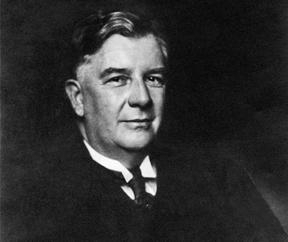
Like the Jesuits in the 17th century, he noted the deep spirituality that animated the Chinese. His aim was not to found a new church in China, but to be a witness to the love of Christ. He declared that this was how the Universal Spiritual Church would spread, without political conflict, and that the Chinese civilisation was, in his opinion, an authentic form of this Church.
The German pastor then founded a school to develop cultural dialogue between China and the Christian West.
The school quickly became very well known among the German and Chinese authorities.
The school was located in the city of Tsing Tao, Qingdao in Chinese, a port in northern China, where the Germans had built an important naval base as a settlement base.
The city had received the political status of a German colonial concession.
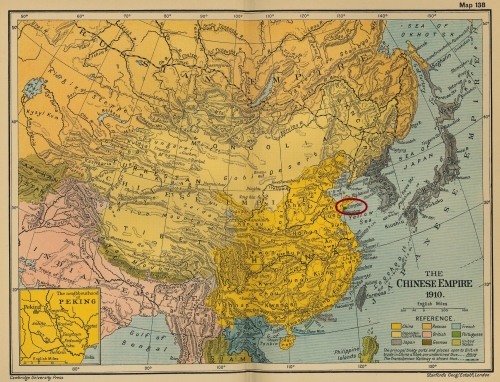
This means that the Chinese government granted the Germans the right to participate in the management of the city, to sit on the city council and to supervise it. This status also protected the city and guaranteed its inhabitants immunity in the case of conflict.
Besides this school, let us also note, for the anecdote, that the Germans in 1903 opened a brewery in Tsing Tao for their needs; Tsing Tao beer became the most famous Chinese beer.
But the work of the German pastor did not stop with the creation of his school. Life led him to an exceptional activity which, over the course of time, has had an immense international influence, an influence which continues to grow even today.
Here is how:
In 1912 revolts multiplied in China and led to the overthrow of the Manchu dynasty. The senior officials of the fallen regime were exposed to the greatest danger and sought refuge in foreign concessions, such as the German Tsing Tao concession where Richard Wilhelm resided.
Wilhelm's reputation attracted many dignitaries: the Minister of Education and his deputy minister took refuge in the German concession.
An exceptional cooperation took place between the Deputy Minister of Education and Richard Wilhelm.
The Deputy Minister of Education, Lao Naï Suan, was a wise man, an authentic scholar, whose wife was a direct descendant of Confucius. He saw in Richard Wilhelm the one to whom he could entrust the treasures of Chinese civilization in turmoil.
These treasures came in two forms:
The philosophy of Confucius
The wise man therefore entrusted Richard Wilhelm with the task of preserving the work and philosophy of Confucius. Thus, thanks to the cooperation of these two eminent men, a library was created, dedicated to the work and philosophy of Confucius.
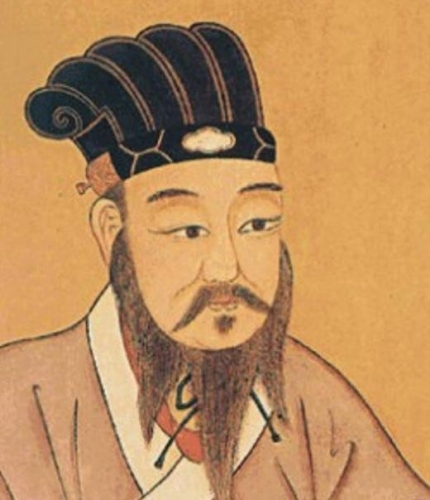
The I Ching
Above all, the Chinese sage entrusted the German pastor with the treasure of Chinese civilisation, the oracular book that is more than four thousand years old: the I Ching.
For two years he worked with Wilhelm to translate the I Ching into German. The venerable Chinese master of thought thus initiated Wilhelm into the secret teaching of the "Book of Changes" and entrusted him with the task of passing it on to Westerners so that the book could come alive again and spread in a new land.
With the teaching completed and the work finished, Wilhelm, who had retired, was recalled to Germany while Master Lao Naï Souan passed away.
In 1920 Wilhelm entrusted his translation of the I Ching to his friend Carl Gustav Jung. Jung made this masterpiece known to the West.
And Jung, speaking of this book, later wrote:
"I am taking this risk because I am now in my eighth decade and I am no longer impressed by the changing opinions of men: the thoughts of the old masters are more valuable to me than the philosophical prejudices of the Western mind."
It would take another half-century for a great inspired scholar, Etienne Perrot, to translate the I Ching into French in 1970.
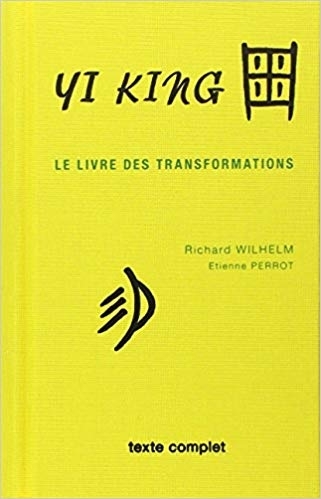
Since then, many more translations have been published.
But let us return to this remarkable man, Richard Wilhelm. In Jung's eulogy of his friend, he said that he had received more from him than from anyone else. Would anyone dare to accuse Jung or Richard Wilhelm of talking nonsense?
Well, well, well!
It was Richard Wilhelm who told Jung the absolutely unbelievable story of the rainmaker! He was an objective witness of these facts. And it was precisely Jung who made this event known to the West.
So now here is the story of the rainmaker.
"The province where Richard Wilhelm was staying was affected by severe drought. For months not a single drop of water fell and the situation became catastrophic.
The Catholics held processions, the Protestants sent up prayers, and the Chinese burned incense sticks and fired guns to scare off the demons of the drought. Finally, the Chinese decided to go to a neighbouring province to look for an old man, who was said to be a "rainmaker".
When the old man arrived with the delegates in the parched province, he asked for a small house to be provided for him. He shut himself up there for three days.
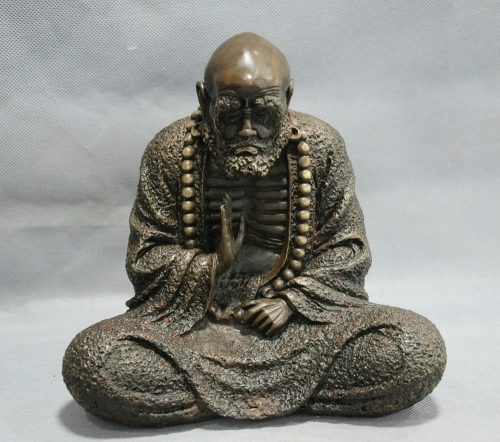
On the fourth day, clouds gathered at a time of the year when no snow was to be expected and ... there was a heavy snowfall, unusually heavy.
There were so many rumours about this extraordinary rainmaker that Wilhelm wanted to find out for sure and went to see the rainmaker. He asked him how he had done it.
As a true European, Wilhelm told him:
"They call you the rainmaker, can you tell me how you made snow? "
The Chinese replied :
"- I didn't make the snow, I'm not responsible for it."
"- But what did you do during the three days?"
"- Oh, that, I can explain to you. It is simple. I come from a country where things are as they should be. Here things are not in order; they are not as they should be according to the Heavenly Order, so the whole country is outside the Tao. (When I arrived in this country here, I was no longer in Tao (2)) nor was I in the natural order of things, because I was in a country that was not in order, so all I had to do was wait three days, until I found myself in Tao, and then, naturally, the Tao made the snow." "
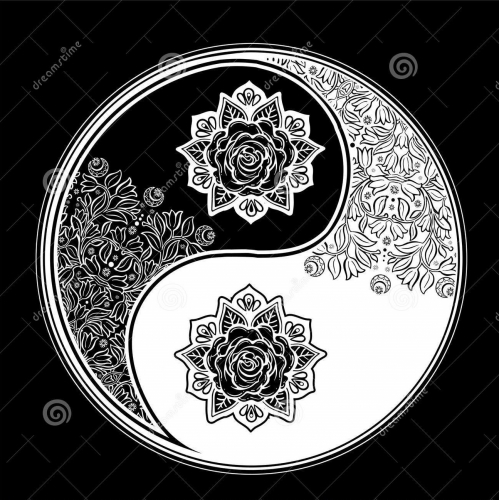
What is the Tao? How can we talk about it in a few words? I am not a specialist, so you will forgive me for my inadequacies.
Tao is the divine principle at the origin of all things, it is the way, the path. To be in Tao is to be in harmony with the divine principle, with nature.
In the Taoist conception, there is a continuity between nature and man, between the world of spirit, of life, of the psyche (3) and that of matter, in which spirit and life manifest themselves and take concrete form. To place oneself in this continuity, in this solidarity between nature and man, is the path of wisdom which makes it possible to influence the phenomenal world. The inner world, the unconscious and the outer world, the world of the conscious are linked and are one.
For scholars this is called the "Unus Mundus". And isn't this precisely what we have learned from the dreams we have just seen?
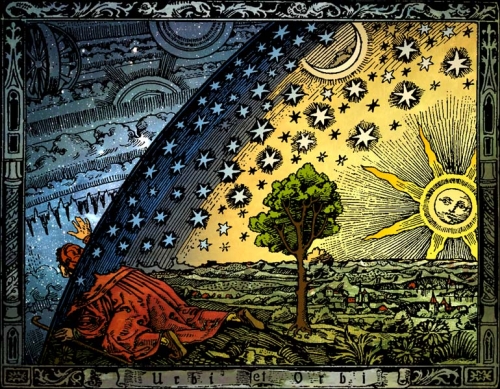
Does this story leave you in doubt, does it seem far away and questionable? It is an old story that dates back more than 100 years, in a country at the antipodes of ours... A story of a rainmaker... A story where man can influence the weather...
Wait !... Now you will see ...
It's not only the old Chinese who influenced the weather ... Listen:
Here is the same story, but this time very close to us. It happened in Italy 30 years ago, in 1989.
"In a small parish in the south of Italy, in May 1989, we were on the eve of a big festival that would attract all the surrounding area. It was a pilgrimage to venerate two martyrs who regularly protected the vineyards of the region from accidents.
Mass was to be said in the open air, a procession was to be held, and triumphal arches filled the streets that were decked out. But the weather was execrable and the barometer was dropping dangerously.
Yet the good priest did not get confused.
In the evening, a parishioner remarked:
"- Priest, I think the devil has gotten involved and our party is in jeopardy.
- It is possible, replied the priest, but the good Lord could also get involved. Come on, good evening and prepare your vocal cords so that they can vibrate in the ears of the crowd. "
The next morning, the sun was there! Unbelievable!
Mass on the big public square and in the evening, more than 2000 people participated in the procession!
When everything was over, the same parishioner came to see the priest and commented:
"- All the same, Mr. Priest, you have prophesied well, the good God has also joined in.
And the parish priest answered:
- I told you so. I had promised my martyrs to have a faith that moves mountains. When I finished my breviary last night, it was midnight and still raining.
So I got down on my knees and said a Rosary.
Afterwards, it rained less. I said a second rosary, I went to the window, it wasn't raining any more, but still clouds.
So I continued.
With each Rosary, it seemed to me that the Blessed Virgin was sweeping the firmament.
Around half past three, the sky was blue and in the morning, a beautiful sun! You know the rest!"
Perhaps you know that I am of Protestant origin and that my grandfather was a pastor? Protestants do not make any room for Mary in their devotion. And yet, as a Protestant, I surrender to this story, where the same reality is expressed: when the soul comes into harmony with the Force of all things, whatever name is given to it, then the outer world and the inner world come into harmony and harmony reigns on earth.
Have you found a more certain way to save the planet?
Christiane
Translated by Marianne
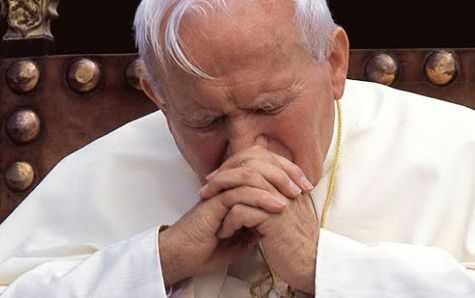
Notes
(1) https://dictionnaire.lerobert.com/definition/ecologie
(2) I have added this explanation for more clarity.
(3) Let's not forget that the word psyche means "soul" and not intellect.
Bibliography
The story of the rainmaker was recounted by Étienne Perrot in the notebooks published by the publishing house "Fontaine de Pierre": extract from notebook 22, 1983.
The story of the Italian weather-maker : (French) https://www.etoilenotredame.org/actualites/le-rosaire
Illustrations
I would like to thank the artists and photographers whose works allowed me to illustrate my blog.
- "The Hours of the Day" by Czech artist Alfons Mucha, 1860-1939: These two paintings are part of a quadriptych representing "Morning Awakening", "Brightness of the Day" and here "Evening Dreaming" and "Night Rest". http://www.muchafoundation.org/
- Richard Wilhelm: https://it.wikipedia.org/wiki/Richard_Wilhelm#/media/File:Bundesarchiv_Bild_137-020287,_Tsingtau,_Deutsche_Schule.jpg
- Concessions in China (Map of China in 1910): https://en.wikipedia.org/wiki/Concessions_in_China
- Confucius: https://www.imdb.com/name/nm0174595/?ref_=nmbio_bio_nm
- I Ching translated by Richard Wilhelm and Étienne Perrot: https://www.cgjung.net/publications/yiking/yiking_1.htm
- Meditating monk: https://pt.aliexpress.com/item/32411330652.html
- Floral Yin and Yang with rose: https://ru.dreamstime.com/
- Colored version of the Flammarion Engraving (1888) by Heikenwaelder Hugo, Austria: https://commons.wikimedia.org/w/index.php?curid=680837
- Pope John Paul II praying: https://www.pinterest.com.mx/pin/554153929125195846/
This article was published on the French blog on 21 November 2019: